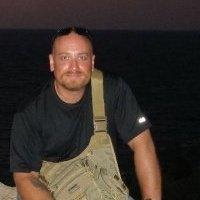Rethinking U.S. Strategy on Terrorism
Rethinking U.S. Strategy on Terrorism
 The first televised debate among Republican presidential candidates gave no indication by the majority of those running that ISIS and other stateless insurgents would be dealt with in anyway except by violence. In fact, the idea of attempting to gain acceptance by citizens locked in place in ISIS strongholds was mocked on the Cleveland arena stage and derided as “Iraqi Medicare.”
The first televised debate among Republican presidential candidates gave no indication by the majority of those running that ISIS and other stateless insurgents would be dealt with in anyway except by violence. In fact, the idea of attempting to gain acceptance by citizens locked in place in ISIS strongholds was mocked on the Cleveland arena stage and derided as “Iraqi Medicare.”
David Alpher would beg to differ. “Killing them is counter-productive,” the George Mason University adjunct professor says.“It undermines the strategy of what it will really take to stabilize the area. The Republican field has missed an essential point about foreign policy, which requires an understanding of all three basic pillars of statecraft: diplomacy, development, and defense. Those three things interact with each other, and the way they get used together, how well balanced, has a good deal to do with how well they work not just now, but in the future.”
Alpher teaches courses on global conflict and terrorism at Mason’s School for Conflict Analysis and Resolution, where he received his master’s degree (’05) and PhD (’11). Beyond his education, his expertise derives from experience - he’s been to conflict zones, including two tours as a field leader in Iraq’s Anbar Province “during the bad days,” he added, working with an NGO to reduce the involvement of youth in the 2007-8 insurgency and to reintegrate displaced populations in Ramadi. In July he wrote a widely circulated op-ed taking exception to the candidates’ violence-prone tendencies they amplified in the debate on August 6, 2015.
In an interview at Mason’s Arlington Campus, Alpher pointed out that along the spectrum of populations in the ISIS-occupied Middle East there is a tiny sliver of “bad guys." Our entire policy toward terrorism is to take out this percentage. And at the other end is a tiny percentage of total peaceniks who won’t pick up a weapon ever.
“The middle, the main population, can swing one way or another.”That’s the ideal target for action," he said.
ISIS members integrate into the surrounding community and offer protection and a nationalistic identity to non-members. Eventually, outsiders are considered the enemy and ISIS’s ranks grow. And the cycle is endless. “You can’t bomb the causes of ISIS,” he said. “It doesn’t recognize what they need to survive. All you’re going to do with bombing is create ISIS 2.0 and 3.0. ISIS is already Al Qaeda 2.0. We smashed Al Qaeda with a hammer and the scattered pieces fell in that fertile ground that no one got around to fixing.”
“You can’t bomb the causes of ISIS,” he said. “It doesn’t recognize what they need to survive. All you’re going to do with bombing is create ISIS 2.0 and 3.0. ISIS is already Al Qaeda 2.0. We smashed Al Qaeda with a hammer and the scattered pieces fell in that fertile ground that no one got around to fixing.”
“Fixing” would mean stabilizing the society, something allied forces have not spent a good deal of time or effort attempting. But once the local culture is stabilized, “it will have the effect of marginalizing that one percent of bad guys and making them easier to deal with.”
As the U.S. associate of Saferworld, an international organization working to prevent violent conflict, Alpher takes his ideas and those of like-minded others to Congress and the State Department in the hopes of changing policy. Are those who establish policy listening?
“They are,” he said with a sigh, “but they say ‘we get it, but we’re not the problem.’ The problem is the U.S. population and Capitol Hill. The Hill says ‘attack, attack, attack’ and is creating fear. And they say this because the population is telling them to say it, and you can’t get reelected without agreeing.”




